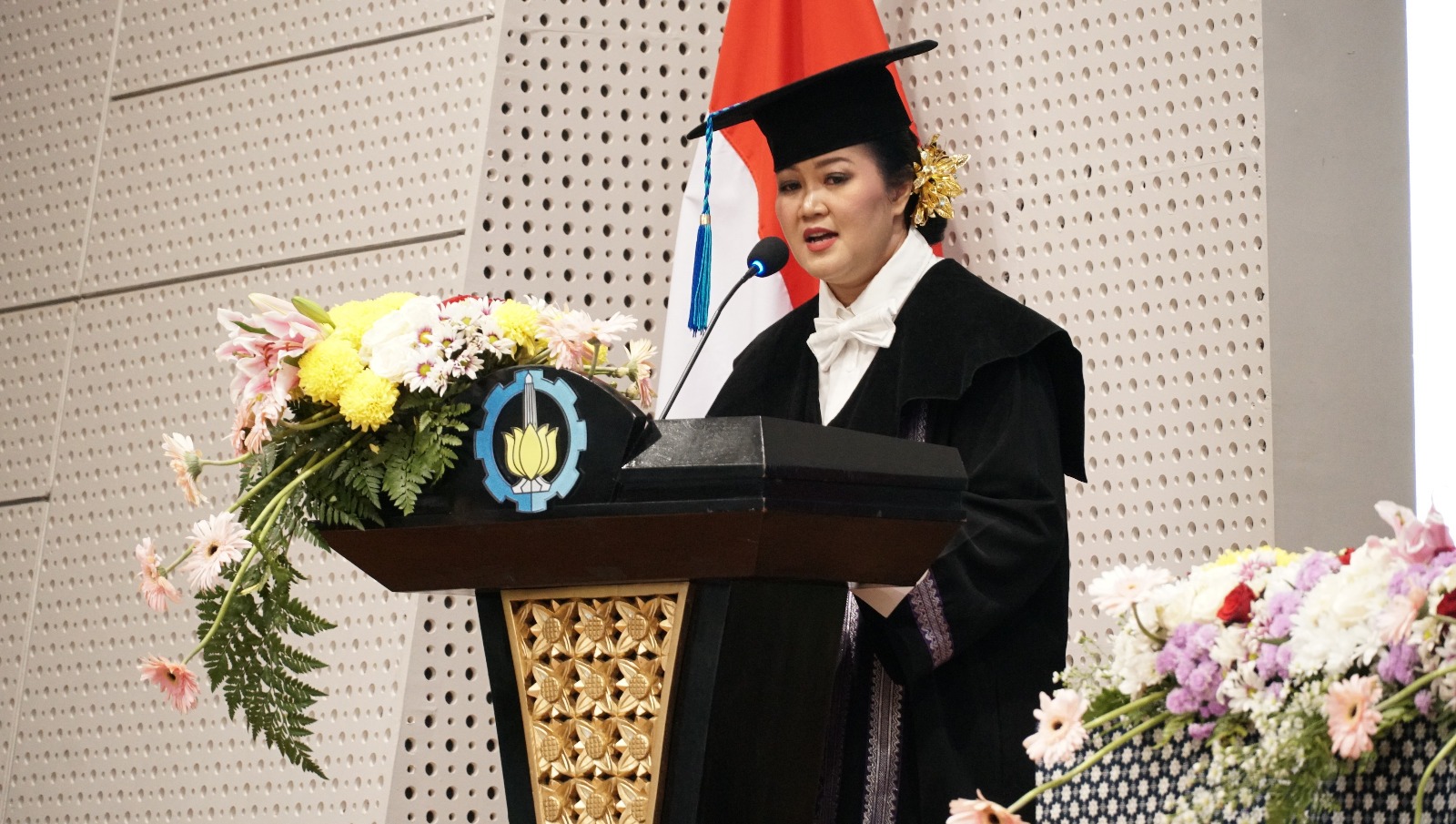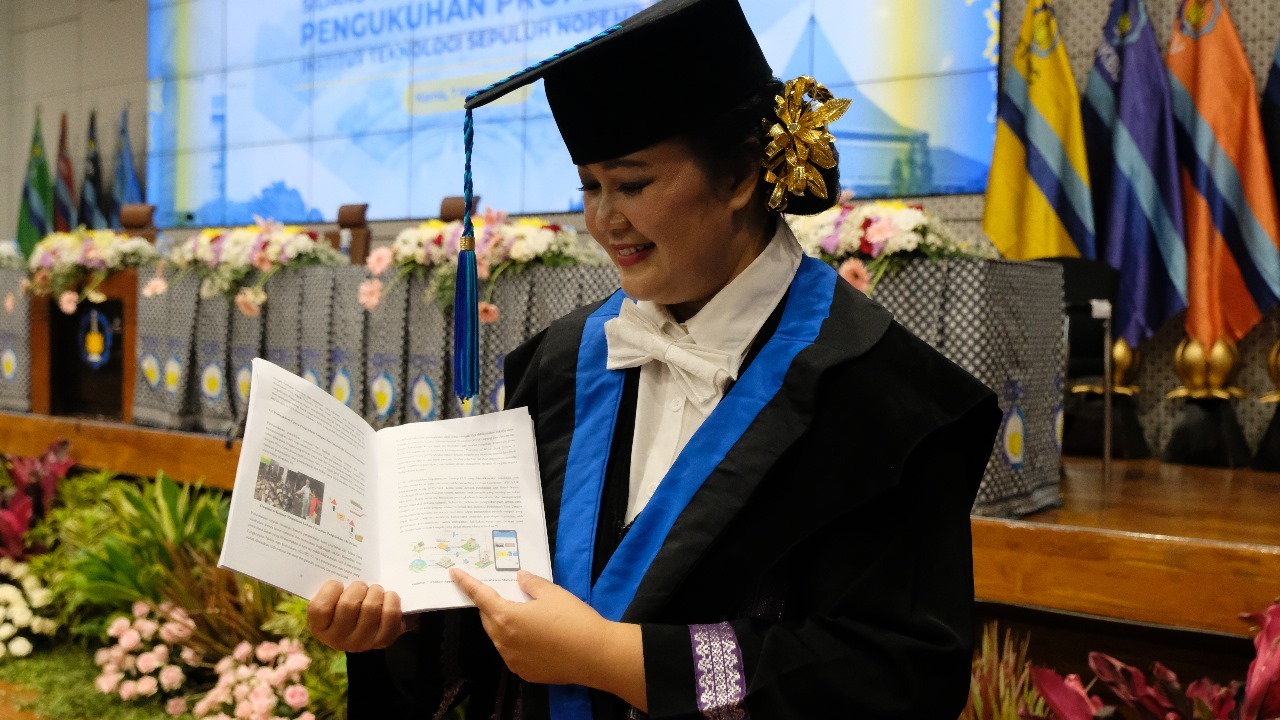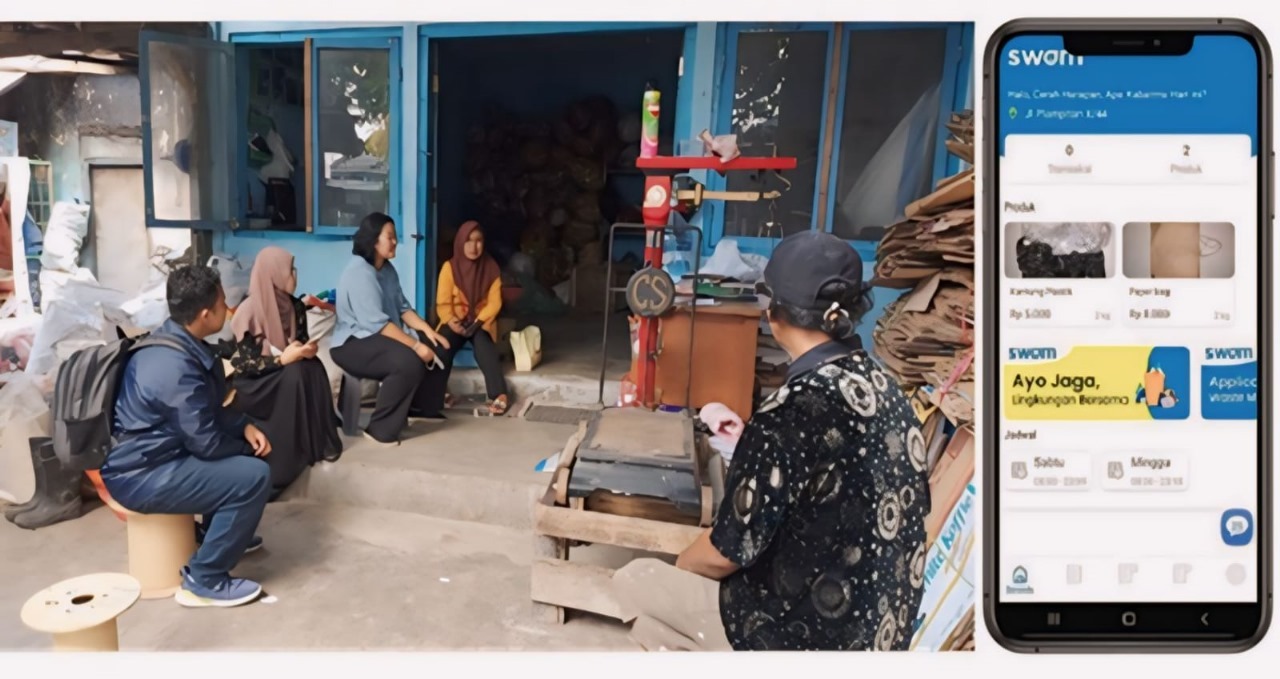ITS Professor Boosts Waste Energy for Circular Economy

Prof. Ir IDAA Warmadewanthi ST MT PhD while delivering her speech at the Open Session of the ITS Professor Council, during her professorial inauguration at ITS.
ITS Campus, ITS News — The accumulation of industrial waste poses its own challenges that continue to haunt the management and utilization processes. Departing from this issue, the 196th Professor of the Institut Teknologi Sepuluh Nopember (ITS), Prof. Ir I Dewa Ayu Agung Warmadewanthi ST MT PhD, has initiated the concept of recovering and utilizing energy from waste to drive the national circular economy.
The woman often referred to as Wawa stated that waste management has not succeeded in reducing the volume of waste generated. According to her, the concept of Final Processing Sites (TPA) only shifts waste from one place to another. “This has led to fires at several TPAs and has disrupted the health of the surrounding communities,” Wawa further explained.
Therefore, the lecturer from the ITS Environmental Engineering Department initiated the concept of recovering and utilizing energy from waste and garbage. Based on her research presented in her professorial speech, Wawa combined the 3R concept (reuse, reduce, recycle) and zero waste into the circular economy concept. “The circular economy concept aims to grow economic potential from waste management efforts,” she elaborated.
The researcher born in Denpasar on January 12, 1975, said that her concept could strengthen economic growth by changing traditions and behaviors of communities in waste management. According to Wawa, waste management in TPAs has actually eliminated the economic value of waste. “This concept can minimize the excess use of energy resources and the waste produced,” she emphasized.
Socialization about digitizing the waste recycling system via the Apps4SWAM application by Prof Ir IDAA Warmadewanthi (third from left) and application display (photo rightShe materialized this concept through her research on recovering phosphorus material. Wawa explained that phosphorus is a rare material that can be obtained through recovery processes. In its application, the recovery process of a material depends on three conditions. “Namely, market value, product quality, and the technology used,” said the wife of I Putu Arta Wibawa ST MT PhD.
If a material has high market value and good quality, she continued, then that material is considered potentially recoverable. However, the technology used must be cost-effective and sustainable. “So that the recovered waste has long-term durability in terms of function and economics,” added the ITS alumna of 1998.
Furthermore, there are three aspects to consider in the material recovery process, including the pH level of the material, the duration of the recovery process, and the recycling process. Wawa emphasized that the recycling process is the key to material recovery. “This process will determine the purity level of the recovered material,” said the mother of Bagus Narendra.

Prof. Ir IDAA Warmadewanthi ST MT PhD explaining the waste material recovery concept as an effort to drive the national circular economy in her professorial speech book.
Meanwhile, as the Head of the ITS Research Center for Infrastructure and Sustainable Environment, she also applies bio-cover in utilizing waste as an energy source. Basically, bio-cover is a process of reusing excavated and sorted soil from TPAs. With highly porous soil characteristics, bio-cover can help reduce methane gas emissions, the main trigger for TPA fires.
Not only recovering and reusing energy from waste, Wawa also designs efforts to improve waste recycling systems. Based on her research, it was found that waste collection efforts pose challenges in the recycling process. Therefore, she created the Apps4SWAM application to connect the government, waste bank managers, and the community. “This way, the recycling process can be more integrated and effective,” she said.
Through her various research efforts, Wawa hopes that the implementation of her envisioned circular economy can be successful. She hopes that various adequate technologies and infrastructures can continue to grow to maximize waste management. “This way, the national economy can continue to grow significantly and provide benefits,” she concluded optimistically. (ITS Public Relations)
Reporter: Hibar Buana Puspa
Related News
-
ITS Sends Off 12 Free Mudik Vehicles Ahead of Eid Al-Fitr
The dispatch of 11 bus fleets carrying ITS students for the Free Mudik ITS 2024 ITS Campus, ITS News
March 13, 2024 20:03 -
ITS Lecturer Wins 2024 Female Science Talents Intensive Tracks from Germany
Sri Fatmawati SSi MSc PhD, a lecturer at the Department of Chemistry, ITS, has emerged as the winner of
March 13, 2024 20:03 -
ITS Shares Tips & Tricks on SNBT 2024 Socialization
(from left) Executive Secretary of SNPMB 2024, Bekti Cahyo Hidayanto SSi MKom, Head of the Admissions Subdirectorate at ITS,
March 13, 2024 20:03 -
Supporting Defense in Indonesia, ITS Professor Creates Anti-Radar Material
Professor Dr. Mashuri SSi MSi, while delivering his academic oration on anti-radar materials during the ITS Professorial Inauguration. ITS
March 13, 2024 20:03

